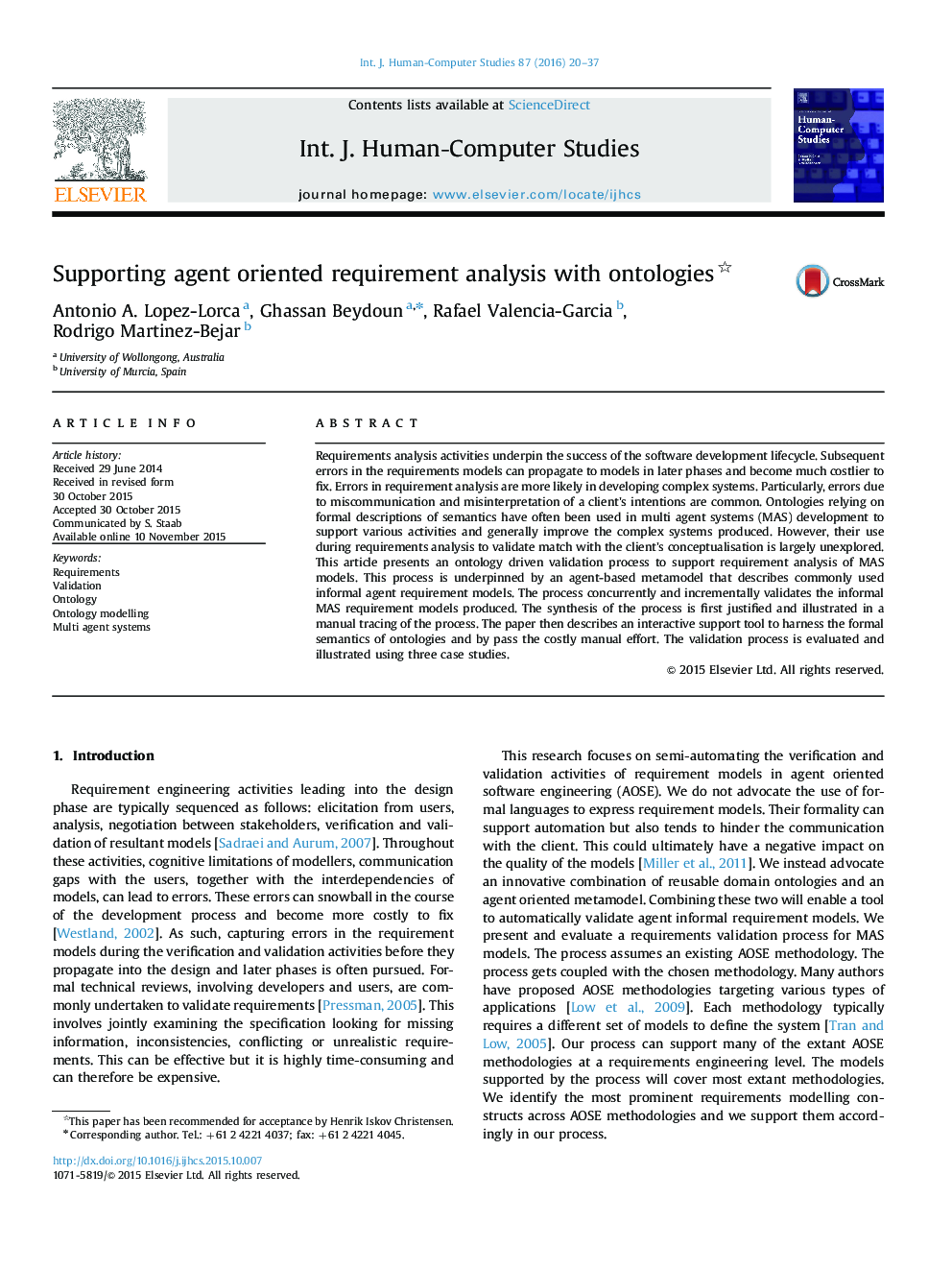| Article ID | Journal | Published Year | Pages | File Type |
|---|---|---|---|---|
| 401111 | International Journal of Human-Computer Studies | 2016 | 18 Pages |
•There is need for high quality requirement models in any iterative process.•This is acute in informal modelling settings e.g. agent oriented analysis.•A tool harnesses domain knowledge to support analysis.•We validate highlighting the methodology-independence of the overall approach.•We validate also highlighting the domain-independence of the overall approach.
Requirements analysis activities underpin the success of the software development lifecycle. Subsequent errors in the requirements models can propagate to models in later phases and become much costlier to fix. Errors in requirement analysis are more likely in developing complex systems. Particularly, errors due to miscommunication and misinterpretation of a client׳s intentions are common. Ontologies relying on formal descriptions of semantics have often been used in multi agent systems (MAS) development to support various activities and generally improve the complex systems produced. However, their use during requirements analysis to validate match with the client׳s conceptualisation is largely unexplored. This article presents an ontology driven validation process to support requirement analysis of MAS models. This process is underpinned by an agent-based metamodel that describes commonly used informal agent requirement models. The process concurrently and incrementally validates the informal MAS requirement models produced. The synthesis of the process is first justified and illustrated in a manual tracing of the process. The paper then describes an interactive support tool to harness the formal semantics of ontologies and by pass the costly manual effort. The validation process is evaluated and illustrated using three case studies.
